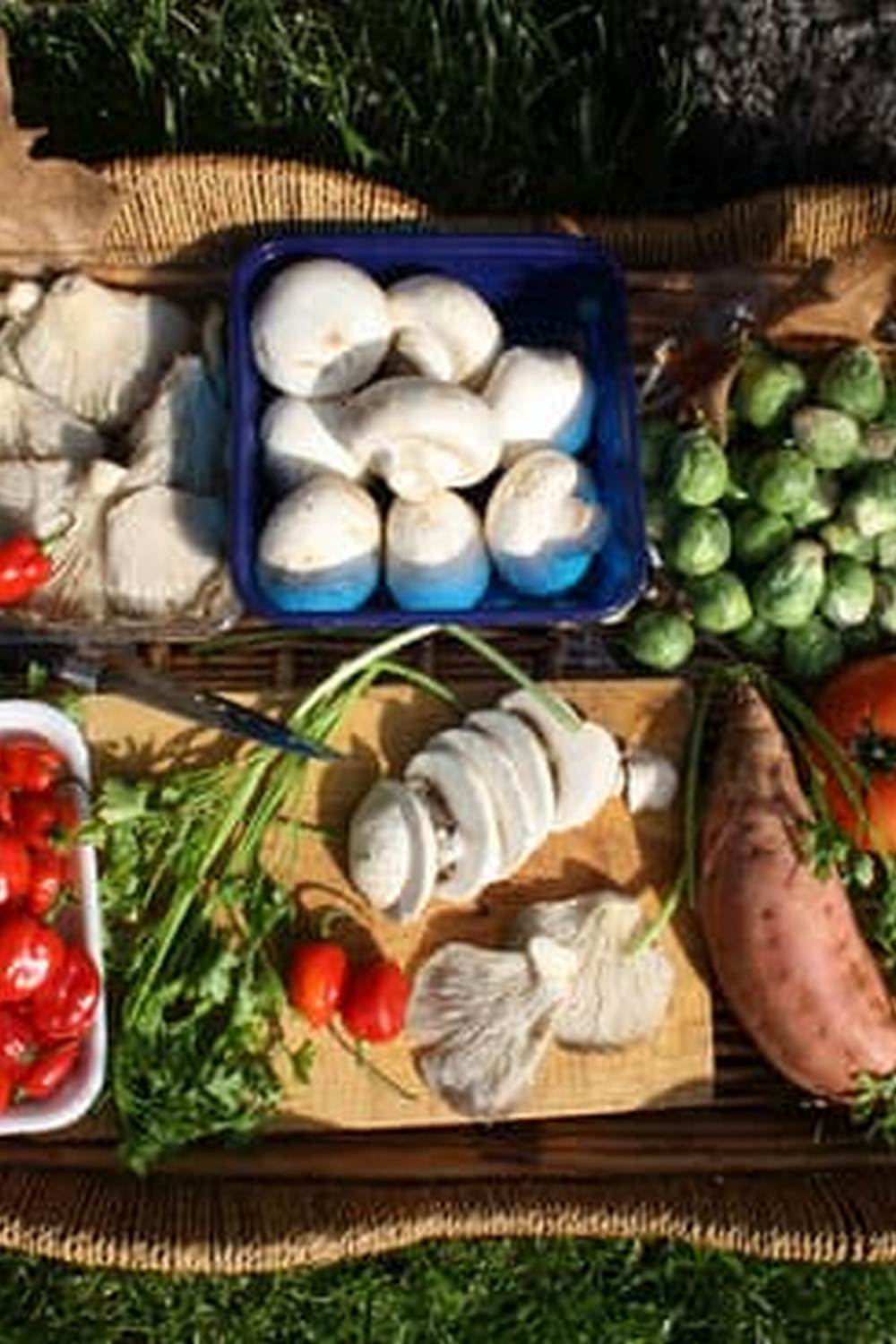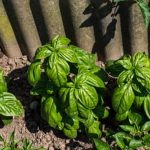Can you use cedar mulch for vegetable gardens? Choosing the right mulch is essential for the health and vitality of your vegetable plants. In this article, we will explore cedar mulch as a potential option for your garden, highlighting its benefits, potential drawbacks, best practices for usage, and alternative mulch options to consider.
Mulch plays a crucial role in retaining moisture, suppressing weeds, moderating soil temperature, and improving overall soil health in vegetable gardens. Cedar mulch, in particular, stands out due to its durability, attractive appearance, and natural insect-repelling properties. Its pleasant aroma also adds to the appeal of using cedar mulch in garden beds.
When considering whether to use cedar mulch in your vegetable garden, it is important to weigh the pros and cons carefully. While cedar mulch can provide numerous benefits such as weed suppression and moisture retention, some gardeners may have concerns about its acidity levels or potential impact on soil pH. By understanding the characteristics of cedar mulch and following best practices for usage, you can make an informed decision on whether it is the right choice for your vegetable garden.
What Is Cedar Mulch
Cedar mulch is a popular choice for gardeners looking to enhance the health and appearance of their vegetable gardens. Made from shredded cedar wood, this type of mulch offers a range of benefits that can contribute to the overall success of your crops.
Here are some key benefits and characteristics of cedar mulch:
- Natural Pest Control: Cedar mulch contains natural oils and compounds that act as insect repellents, helping to deter pests that can damage your vegetable plants.
- Weed Suppression: The dense nature of cedar mulch creates a barrier that can help prevent weeds from sprouting in your garden beds, reducing the need for constant weeding.
- Moisture Retention: Cedar mulch has excellent water retention properties, which can help regulate soil moisture levels and reduce the frequency of watering needed for your vegetables.
Despite these advantages, there are some considerations to keep in mind when using cedar mulch in your vegetable garden. Here are a few potential drawbacks:
- Cost: Cedar mulch tends to be more expensive than other types of mulch, which may not be feasible for those on a tight budget.
- Soil Acidification: Cedar mulch naturally decomposes over time, releasing acids into the soil that may lower its pH levels. This can potentially affect the growth of certain vegetables that prefer neutral or alkaline soil conditions.
- Decomposition Rate: Cedar mulch breaks down relatively slowly compared to other organic mulches, which means you may need to replenish it less frequently but also consider its long-term impact on soil health.
Pros of Using Cedar Mulch in Vegetable Gardens
Cedar mulch is a popular choice for gardeners looking to provide their vegetable plants with a variety of benefits. Here are some of the reasons why using cedar mulch can be advantageous for your vegetable garden:
- Weed suppression: Cedar mulch has natural properties that help inhibit the growth of weeds in your vegetable garden, which can compete with your plants for nutrients and water.
- Moisture retention: One of the key benefits of cedar mulch is its ability to retain moisture in the soil, ensuring that your vegetable plants have a consistent water supply, especially during hot and dry periods.
- Pest deterrent: Cedar mulch contains natural oils that act as a deterrent to certain pests, such as insects and termites, helping protect your vegetable plants from potential damage.
In addition to these advantages, cedar mulch also breaks down slowly, providing long-lasting benefits for your vegetable garden. As it decomposes, it enriches the soil with organic matter, improving its overall health and fertility. This means that by using cedar mulch in your vegetable garden, you are not only beautifying the space but also promoting the growth and productivity of your plants.
Overall, cedar mulch can be a valuable addition to your vegetable garden due to its weed-suppressing properties, moisture-retaining capabilities, pest-repelling qualities, and soil-enriching benefits. By incorporating cedar mulch into your gardening routine, you can create a healthier and more productive environment for your beloved vegetable plants.
Cons of Using Cedar Mulch in Vegetable Gardens
Cedar mulch, while popular for its aromatic properties and natural resistance to pests, may not be the best choice for vegetable gardens due to certain drawbacks. One of the main concerns is that cedar mulch can alter the pH level of the soil over time.
Cedar mulch tends to be acidic, which can be detrimental to some vegetable plants that prefer a neutral or slightly alkaline soil environment. This shift in pH levels could hinder the growth and development of your vegetables.
Another drawback of using cedar mulch in vegetable gardens is its slow decomposition rate. While this slow decomposition can result in less frequent mulching needs, it also means that essential nutrients from the mulch will not be readily available to your vegetable plants. Vegetables require a nutrient-rich soil environment to thrive, and cedar mulch’s slow breakdown process may not provide an adequate source of nutrients for optimal growth.
Moreover, cedar mulch has been known to repel certain beneficial insects such as earthworms. Earthworms play a vital role in maintaining healthy soil structure and aiding in nutrient cycling. The natural oils present in cedar mulch can deter earthworms from inhabiting the soil where your vegetables are growing. Without these important soil organisms, your vegetable garden may suffer from poor soil health and reduced productivity.
| Concern | Impact |
|---|---|
| Alters Soil pH | Hinders growth of vegetables |
| Slow Decomposition Rate | Lack of essential nutrients for plants |
| Repels Earthworms | Poor soil health and reduced productivity |
Best Practices for Using Cedar Mulch in Vegetable Gardens
Cedar mulch is a popular choice for vegetable gardens due to its numerous benefits. Not only does cedar mulch provide an attractive appearance to your garden beds, but it also helps in retaining moisture, suppressing weed growth, and even repelling certain pests. Additionally, cedar mulch has natural oils that can act as a natural insect repellent, reducing the need for chemical pesticides.
One of the best practices for using cedar mulch in vegetable gardens is to apply it properly to maximize its benefits. It is recommended to spread a layer of cedar mulch around 2-3 inches thick on the soil surface around your vegetable plants.
Be sure to leave a small gap between the mulch and the base of the plants to prevent moisture-related issues such as rotting or fungus growth. Furthermore, make sure to replenish the mulch layer as needed throughout the growing season, especially after heavy rain or wind.
Another important tip when using cedar mulch in vegetable gardens is to avoid piling up the mulch against plant stems or trunks. This practice can lead to excess moisture retention against the plant base, potentially causing root rot or other diseases.
Instead, create a slight indentation around each plant when applying cedar mulch to ensure proper air circulation and drainage. By following these best practices, you can make the most out of cedar mulch in your vegetable garden and help your plants thrive.
| Benefits of Cedar Mulch | Best Practices for Using Cedar Mulch |
|---|---|
| Retains moisture | Apply 2-3 inches thick layer |
| Suppresses weed growth | Leave small gap between mulch and plant base |
| Natural insect repellent | Replenish mulch layer as needed |
Other Mulch Options for Vegetable Gardens
When it comes to mulching your vegetable garden, cedar mulch is not the only option available. While cedar mulch can offer several benefits such as weed suppression, moisture retention, and pest control, exploring alternative mulch options can provide different advantages for your vegetable plants.
Straw
One popular alternative to cedar mulch for vegetable gardens is straw. Straw is a cost-effective and readily available option that can help retain soil moisture, regulate soil temperature, and suppress weeds. Additionally, as straw breaks down, it can add organic matter to the soil, improving its structure and fertility.
Grass Clippings
Another alternative mulch option for vegetable gardens is grass clippings. Grass clippings are rich in nutrients and can be used as a free source of mulch for your plants. However, it is important to use grass clippings from untreated lawns to avoid introducing harmful chemicals to your garden. Grass clippings also break down quickly, so they may need more frequent replenishment compared to other types of mulch.
Compost
Using compost as mulch in your vegetable garden is an excellent way to improve soil health and provide essential nutrients to your plants. Compost helps retain moisture, suppresses weeds, and encourages beneficial microorganisms in the soil. When using compost as mulch, make sure it is well-aged and spread evenly around your plants to maximize its benefits.
Exploring these alternative mulch options for your vegetable garden can help you choose the best option based on your gardening goals and plant needs. Each type of mulch offers unique benefits that
Cautions and Considerations When Using Cedar Mulch
When using cedar mulch in vegetable gardens, there are some important cautions and considerations to keep in mind to ensure the health and well-being of your plants. While cedar mulch can offer numerous benefits, it is essential to be aware of potential drawbacks and take precautions to maximize its effectiveness in your garden.
Potential Effects on Soil pH
One consideration when using cedar mulch in vegetable gardens is its impact on soil pH. Cedar mulch has natural properties that can slightly lower the pH of the soil over time. While this may benefit acid-loving plants, such as tomatoes or blueberries, it may not be ideal for all vegetables. It is recommended to test your soil regularly and adjust the pH as needed to maintain optimal growing conditions for your plants.
Potential Allergies or Sensitivities
Some individuals may be sensitive or allergic to certain compounds found in cedar mulch. When handling cedar mulch, wear gloves and a mask to prevent any potential skin irritation or respiratory issues. If you notice any adverse reactions while working with cedar mulch, discontinue use immediately and consult a medical professional.
Consideration for Pets
Pets, especially dogs, are attracted to the scent of cedar mulch and may be tempted to nibble on it. However, ingesting cedar mulch can be harmful to animals due to its natural oils and compounds. To protect your pets, consider fencing off garden areas where cedar mulch is used or opt for pet-friendly alternatives. Additionally, regularly inspect the area for any chewed or disturbed mulch that could pose a risk to your furry friends.
By being mindful of these cautions and considerations when using cedar mulch in vegetable gardens, you can enjoy its benefits while mitigating any potential risks. Properly managing the application of cedar mulch will help create a healthy environment for your vegetable plants in which they can thrive and flourish throughout the growing season.
Conclusion
In conclusion, cedar mulch can be a suitable option for vegetable gardens due to its many benefits. The natural characteristics of cedar mulch, such as its ability to repel insects and resist decay, make it a popular choice among gardeners. Additionally, cedar mulch can help with moisture retention and weed control, ultimately promoting the health and growth of vegetable plants.
While there are numerous advantages to using cedar mulch in vegetable gardens, it is essential to consider some potential drawbacks as well. Cedar mulch has a strong aroma that can deter some pests but may be overwhelming for some gardeners. It also tends to be more expensive than other mulch options, which could be a factor to consider depending on your gardening budget.
Ultimately, when deciding whether to use cedar mulch for your vegetable garden, it is important to weigh the pros and cons while also considering alternative options. Experimenting with different types of mulch materials can help you determine what works best for your specific garden needs.
Remember to follow best practices when using cedar mulch, such as applying the right amount and avoiding direct contact with plant stems. With proper care and consideration, cedar mulch
Frequently Asked Questions
Can I Use Cedar Mulch Around My Tomato Plants?
Cedar mulch can be used around tomato plants, as it helps retain moisture in the soil, regulate temperature, and suppress weed growth. However, cedar mulch should be used sparingly to avoid issues like nitrogen depletion.
What Is the Best Mulch for Vegetable Garden?
The best mulch for a vegetable garden depends on various factors such as climate, soil type, and personal preference. Organic mulches like straw, grass clippings, or shredded leaves are popular choices as they improve soil health over time and provide nutrients to the plants.
What Are the Disadvantages of Cedar Mulch?
Despite its benefits, cedar mulch also has its disadvantages. Cedar mulch can be more expensive compared to other types of mulches, which may not be feasible for large gardening projects. Additionally, due to its slow decomposition rate, cedar mulch may not contribute as much organic matter back to the soil over time compared to other organic mulches.

If you’re looking to get into vegetable gardening, or are just looking for some tips on how to make your current garden better, then you’ve come to the right place! My name is Ethel and I have been gardening for years. In this blog, I’m going to share with you some of my best tips on how to create a successful vegetable garden.





